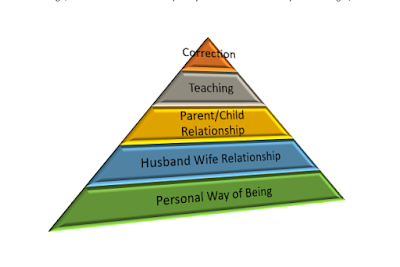There’s No Such Thing as “One Size Fits All” in Parenting
Three years ago, I embarked on a new journey to further my
education. As a single mother of two boys, ages 9 and 11, working fulltime and
attending school part-time would prove to be detrimental to my children. It
marked a new path that I would have to travel with them, an especially
difficult path for my 9-year-old. That was the year the tantrums began. I was blinded
by what I now consider to be selfish aspirations; I refused to listen to the
pediatrician who told me that my children were screaming for my attention. I
was surprised when she was bold enough to tell me that now is not the right
time for me to be going to school. Here, I finally had this opportunity through
the church, to work on my undergraduate degree, and the pediatrician was
telling me it was wrong. It made me very upset and my righteous pride blinded
me even more.
I could not bear the disposition of my 9-year-old. He was always
grumpy. I would often think of how miserable an existence it must be to be him.
I wanted to help him, but I did not know how. He would yell, hit, moan, whine
and make unbearable, illegible sounds that made everyone around him want to run.
He was extremely picky at meal times, gagging at the mere sight of some foods,
and needing separate plates for his pancakes and eggs. He refused to put dirty
dishes in the dish washer because, well, they were dirty, and he refused to
take clean dishes out of the dish washer because they were wet. If we went out
to eat, he would check each chair to pick the cleanest one. If there were
crumbs, he would crumble, so, we stopped going out to eat. The seams on his
socks bothered him, so did the tags, armpit seams and cuffs on his shirts. Once
I took the kids to a fun dinosaur expo. He was miserable the entire time
because he hated the wristband that he had to wear. I’d have to drag him to
events or activities, and then I would have to drag him back home. He had to
sit in a specific seat in the car. He would not wash his hands before going to
bed because it would change the way the tag on the wash cloth that he held all
night would feel. The list could go on and on. As for me, I am very ashamed to
say that I would snap at him in frustration. I forced him to do things he did
not want to do and wished that he was more like his brother.
Understanding Your Child
Eventually, I sought the advice of the employee counselor at work.
Ann Turner, PhD, LCSW-C listened to me relate the troubles I was having with my
son. She nodded her understanding and then told me that he is a Highly
Sensitive Child. At her advice, I read the book, Understanding
the Highly Sensitive Child, Seeing an Overwhelming World Through Their
Eyes. Suddenly my eyes were opened and what a world of difference it
made! I became more compassionate toward my son because I understood him. His
senses were being stimulated at a higher degree than the average person. He was
constantly being overstimulated. It’s no wonder he broke down so easily. I felt
awful for not knowing what to do sooner.
I quickly learned that I needed to adjust my parenting to fit him.
It took a lot of patience and extra effort, but it was all worth the semblance
of sanity and order that gradually returned to our family life. I must be ever
vigilant about keeping him informed. This allows him to prepare to switch
gears. When he tells me that his shirt bothers him, I believe him and give him
the opportunity to find something that feels better. “Use your words,” I would
say, “I’d like to try to understand and help you if I can, but I don’t
understand what your sounds mean other than you’re upset about something.” It
takes longer to get ready to go anywhere, so I learned to plan extra time for
the morning routine. This affords us the time necessary for an unanticipated
sensitivity. Steinberg (2004) indicates, “The key to dealing successfully with
a temperamentally difficult child is for you to select and create situations
that suit his personality.” He further suggests creating “situations that take
advantage of your child’s innate strengths and avoid those that accentuate his
weaknesses.”
As I have taken the time to learn more about my child, I have come
to understand him better and am better prepared to nurture him and help him
grow.
References
Steinberg, L. D. (2005). The ten basic principles of good parenting. New York: Simon & Schuster
Paperbacks.
Williamson, J. (2014). Understanding the highly sensitive child. Seeing
an overwhelming world through their eyes.



Comments
Post a Comment